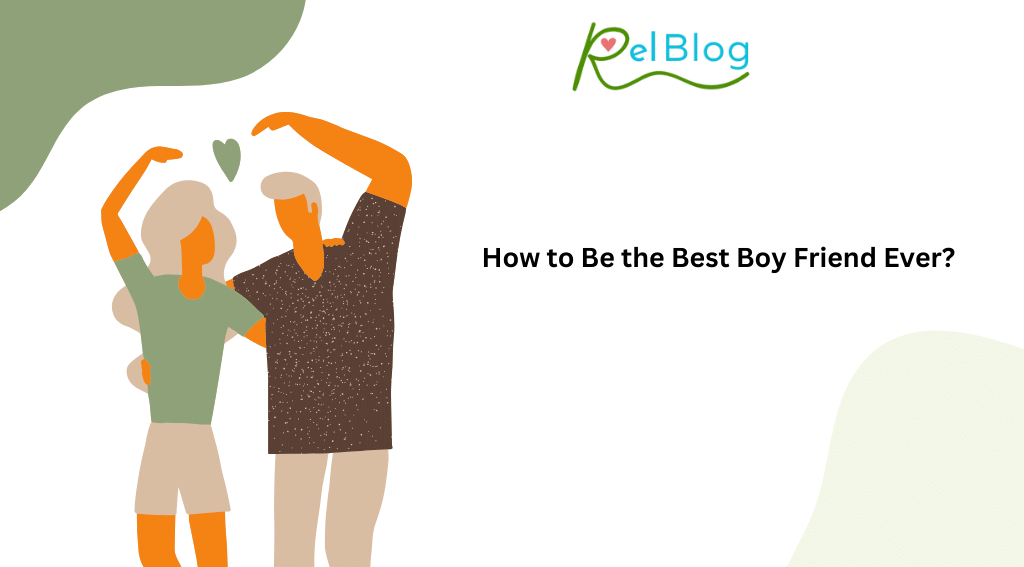Here We’ll look at some easy yet effective ways to improve your role as a loving and supportive partner. Our guide is intended to assist you in becoming the best version of yourself, whether you are in your first relationship or have been dating for a long time. So let’s get started and see how you can build a strong relationship foundation.
Recognizing the Value of Relationship Communication
Communication serves as the cornerstone for comprehension, connection, and development in any relationship. It involves more than just “exchanging words”; it also requires “active listening,” “empathy,” and “the willingness to express yourself honestly.” Building a strong and fulfilling relationship requires developing healthy communication patterns. Here are the reasons:
1. Building Trust: Partners’ trust is cultivated through honest and efficient communication. It promotes intimacy and a sense of security when you are both heard and understood. Any successful partnership is built on trust, and it can only thrive in open communication.
2. Conflict resolution: While conflict is unavoidable in any relationship, effective conflict resolution requires effective communication. You can find common ground and work toward mutually agreeable solutions by openly discussing your concerns, needs, and boundaries. Conflicts can cause misunderstandings and resentment if communication is avoided.
3. Increasing Emotional Intimacy: You can develop a strong emotional connection with your partner by sharing your thoughts, feelings, and experiences. You can support and comprehend one another more deeply through effective communication, which strengthens your relationship.
4. Communication is essential for both maintaining and nurturing a relationship’s growth. You can discuss fresh concepts, aspirations, and ideas with others by having meaningful conversations. Both partners’ personal and romantic development is aided by ongoing communication. The foundation of understanding, connection, and relationship growth is communication.
key takeaways: Building trust, effectively resolving conflicts, enhancing emotional intimacy, and fostering growth are all benefits of open communication. Healthy communication requires active listening, empathy, and honest expression.

Developing Empathy and Active Listening to Improve Your Connection
One of the most important aspects of our lives is creating and maintaining strong relationships with others. Even though it might seem simple, it calls for conscious effort and the development of fundamental abilities like active listening and empathy. These skills foster compassion, understanding, and a deeper level of connection in addition to improving our relationships.
Empathy: The ability to comprehend and share another person’s emotions. We can understand someone else’s feelings and experiences by putting ourselves in their shoes. Empathy development involves:
- practicing active participation in conversations, confirming other people’s feelings, and offering a secure outlet for expression.
- attempting to comprehend a person’s emotions’ context and history before passing judgment.
- Even if we don’t entirely agree, we should respect and acknowledge different points of view.
Giving our full attention to what someone is saying and demonstrating our attentiveness through verbal and nonverbal cues is known as active listening. The following can improve active listening:
- keeping eye contact to demonstrate conversational interest and engagement.
- avoiding interjecting or preparing our response while the other person is speaking.
- reflecting the speaker’s words to demonstrate our active processing of their message and to clarify understanding.
We foster a sense of trust and openness in others by incorporating empathy and active listening into our interactions. With the help of these abilities, we can build stronger bonds, find better solutions to conflicts, and foster a more peaceful environment throughout our lives.
Key Takeaways
- Active participation, context awareness, and respect for various viewpoints are all components of developing empathy.
- Maintaining eye contact, avoiding interruptions, and reflecting back the speaker’s words all contribute to active listening.
- Empathy and active listening are used to improve relationships, reduce conflict, and foster peace in the environment.
Building a Strong Foundation and Nurturing Trust
Any successful relationship is built on trust, which is also the basis upon which we build our businesses, teams, and other significant endeavors in life. It takes a lot of work and commitment to open communication, transparency, and integrity to maintain trust. We can foster a climate where collaboration thrives, ideas are freely shared, and productivity soars by fostering trust.
Active listening is a crucial strategy for fostering trust. We respect and value other people’s opinions when we genuinely listen to them. People feel heard and understood, which creates a strong foundation of trust. Additionally, consistently being truthful and upholding our promises will show dependability and accountability, which will strengthen the trust we have built.
Building a solid foundation requires us to have faith in ourselves as well as in others. It’s important to have faith in our own abilities and decision-making confidence. We can increase our self-trust and create a strong foundation that will support our development and success by continuously learning, learning new skills, and seeking feedback.
Key Takeaways
- Open communication, transparency, and integrity are necessary to foster trust.
- By respecting other people’s opinions and input, active listening fosters trust.
- Reliability and accountability are demonstrated by being truthful and keeping promises.
- Trusting in ourselves and constantly looking for growth are two components of building a solid foundation.
Recognizing and Honoring the Uniqueness of Your Partner
It’s essential to respect and celebrate your partner’s uniqueness in order for your relationship to be healthy and fulfilling. You two can strengthen your relationship and forge a more harmonious connection by acknowledging their individuality and letting them express themselves freely. You can recognize and celebrate your partner’s uniqueness in the following ways:
- Be sincere in your interest: Spend some time getting to know your partner’s interests, hobbies, and objectives. Ask open-ended questions and pay close attention to the answers. You show that you value their uniqueness by expressing sincere interest.
- Respect boundaries: Each person has unique preferences and set of boundaries. Respecting these boundaries and giving your partner the room they need to be themselves is essential. Encourage open communication so that you can respect each person’s unique needs and better understand them.
- Encourage and support your partner’s goals, whether they involve pursuing a new career, learning new skills, or engaging in hobbies. Be their motivator and offer them the emotional support they need to succeed in their endeavors.
- Accept differences: Everyone has unique viewpoints, values, and ways of thinking. Celebrate your partner’s distinctive viewpoints and take lessons from them rather than attempting to change them. It can help you grow personally and develop a deeper appreciation for one another by accepting the differences between you.
Making a safe, loving environment where your partner feels valued for who they are is important to celebrating their uniqueness. You strengthen the basis of your relationship and create a stronger connection by respecting their individuality and encouraging their personal development.
Key Takeaways
- Genuinely care about the interests and objectives of your partner.
- Respect their boundaries and individual requirements.
- Encourage their aspirations and personal development by supporting them.
- Accept differences and learn from each other’s distinctive viewpoints.

Understanding Compromise for a Harmonious Relationship
Compromise is the key component that keeps everything running smoothly in any relationship. Finding common ground and “working together to reach mutual agreements” is an art form. Mastering this skill strengthens the bond between partners in addition to fostering harmony in our relationships. Here are some crucial pointers for mastering compromise:
1. Establishing direct lines of communication with your partner is essential. Effective compromise will be made possible by actively listening to and expressing your needs, desires, and concerns.
2. Recognize the core values that are unassailable for you and your partner. You can concentrate on the areas where compromise is possible without compromising your core beliefs by identifying these in advance.
3. Find win-win solutions: Finding solutions that benefit both parties is the aim of a “compromise.” Brainstorm together and consider innovative options until you come to a solution that meets both of your needs.
4. Empathize by putting yourself in your partner’s shoes and attempting to comprehend their viewpoint. You can develop understanding and find common ground by demonstrating empathy.
5. Be flexible: Flexibility is essential to the art of compromise. To find a middle ground, be open to changing your perspective or letting go of some expectations.
6. Accept flaws in yourself and keep in mind that nobody is perfect. A harmonious and happy relationship can be kept going by accepting your partner’s flaws and being open to compromise on minor issues. Keep in mind that patience and practice are necessary to master the art of compromise. You can foster respect, understanding, and a strong bond in your relationship by embracing these values.
Key Takeaways: A successful compromise is built on effective communication. The core values of your partner must be respected and understood. Find win-win solutions that meet the needs of both partners. Empathy and adaptability are essential components of a healthy relationship.
Providing Unconditional Encouragement and Support
Giving someone unwavering support and encouragement when they are facing uncertainty or adversity can mean the difference between life and death. When we provide this kind of assistance, we give people a secure setting in which to express themselves without worrying about criticism or judgment.
Here are a few ways to show unwavering encouragement and support:
- Give the person your undivided attention and show genuine interest in what they have to say by listening intently and actively. To let them know you’re there, keep eye contact, nod, or give them verbal affirmations.
- Reassurance is given by expressing your belief in the person’s skills and strengths. Remind them that failures are common and that they can overcome any challenges they may face with perseverance.
- Offer “praise” and “validation“: Appreciate their efforts and accomplishments, no matter how modest. Informing them that their efforts have been recognized and valued will increase their self-confidence.
- Empathize by putting yourself in their shoes and attempting to comprehend their viewpoint. They can validate their feelings and realize they are not alone by reflecting their emotions back to them.
- Create a setting where people feel comfortable expressing themselves without worrying about being judged. Avoid judgment and criticism. When necessary, offer constructive criticism while concentrating on their development and improvement rather than pointing out their shortcomings.
Remember that being a source of positivity and unwavering faith in someone’s potential is the key to providing unconditional support and encouragement. You can support others in flourishing and realizing their full potential by exhibiting these traits.
Key Takeaways
- Actively listen and provide reassurance.
- Offer praise, validation, and empathy.
- Avoid judgment and criticism, focusing on growth instead.
Reignite the Spark in Your Relationship to Keep the Flame Alive
Relationships burn like fires. To keep the flame alive, they need constant care and attention. The initial spark may fade over time, but that doesn’t mean the fire cannot be rekindled! Here are a few easy-to-follow strategies for rekindling your relationship’s spark:
- Introduce new activities and experiences into your relationship to spice up the routine and break it up. Plan surprise date nights, embark on adventures, or attempt a novel endeavor.
- Open and honest communication is essential. Spend some time paying close attention to your partner and being honest with them. Make a secure environment where both of you can express yourself freely.
- Small gestures can have a significant impact when it comes to rekindling romance. Send your partner sweet notes, arrange private evenings, or give them their favorite treat as a surprise. They are reminded of their value and love by these actions.
- Invest in quality time: Despite the fact that life can be hectic, it’s crucial to regularly schedule time for one another. Put away distractions, have meaningful conversations, and take pleasure in group activities.
Keep in mind that both partners must work to rekindle the spark in your relationship. You can develop a stronger and more passionate bond with your loved one by using these straightforward suggestions.
Key Takeaways
- To break up the routine, introduce new activities.
- Open and honest communication should be given top priority.
- Small gestures can rekindle the romance.
- Spend quality time together.
Small gestures have a big impact: thoughtful ways to express your love.
1. Surprise Messages and Notes
Send your loved ones virtual messages or small handwritten notes to express your gratitude. These unexpected displays of affection will undoubtedly make them smile, whether it’s a sweet message tucked away in their lunchbox or an emotional text in the middle of their busy day.
Acts, not words, are a better way to express your love. When they least expect it, offer to run errands, prepare a favorite meal, or assist. Making someone feel loved and appreciated can be done in small ways.
3. Gifts with Meaning
A thoughtful gift need not be extravagant. Instead, concentrate on locating something sentimental or in line with their interests. A unique photo album, a handcrafted item, or even an ordinary trinket that brings back special memories are all possible. Sometimes the most meaningful gifts are those that are small and considerate.
4. Time Quality
Giving someone your undivided attention is the best way to say “I love you.” Set aside quality time to do things you both enjoy, whether it’s going for a walk, playing cards, or just talking to someone directly. These encounters have the power to fortify bonds and produce enduring memories.
Keep in mind that love isn’t always about big gestures; it’s more about little, consistent acts of concern. These thoughtful ways of expressing love are what really matter in a world where busy lives frequently take over. So today, take a moment to express your love to someone.
Key Takeaways
- Send handwritten notes or messages to your loved ones as a surprise.
- Offer helpful deeds to demonstrate your love.
- Pick thoughtful presents that are sentimental or in line with their interests.
- Spend quality time with each other to forge strong bonds and cherish memories.

Prioritizing Quality Time for Meaningful Connection and Bonding
It can be simple to let the demands of daily life consume all of our time and energy in today’s fast-paced world, leaving little room for meaningful relationships and connections with our loved ones. To build stronger bonds and leave lasting memories, it is essential to prioritize quality time.
We can truly interact with one another by putting our devices aside and setting aside time for our loved ones, which fosters trust, understanding, and empathy. Strong relationships are built on quality time, whether it be through shared activities, meaningful conversations, or just being around one another.
Making rituals and traditions can also strengthen our relationships with our loved ones. These shared experiences foster a sense of belonging and strengthen the bonds we have, whether it’s during weekly family game nights or on monthly outings to explore new places.
Keep in mind that the quality of the moments shared, not how much time is spent together, is what matters. Prioritize active listening and open communication while looking for opportunities to participate in activities that make people happy and laugh. We can develop stronger bonds and produce a lifetime of treasured memories by doing this.
Key Takeaways
- To build stronger bonds and leave lasting memories, prioritize quality time.
- To develop trust and understanding, disconnect from technology and interact with loved ones.
- To strengthen ties and foster a sense of belonging, develop rituals and traditions.
- Concentrate on the quality of your time together rather than its quantity.
Respecting boundaries and individual space in a relationship
In any relationship, it’s important to establish and uphold healthy boundaries. It promotes mutual respect, trust, and a sense of security among partners. Individuals can maintain their independence and autonomy within the partnership by respecting personal space. Here are some crucial things to think about when it comes to maintaining boundaries in your relationship:
- Understanding one another’s boundaries requires open and honest communication. To prevent misunderstandings, be open about your needs, preferences, and limitations.
- Active Listening: Respecting your partner’s boundaries requires paying close attention to their worries and desires. While they are expressing their thoughts and feelings, pay close attention and be sympathetic.
- Consent: In any situation involving physical or emotional intimacy, always ask for and respect consent. Recognize that consent can be withdrawn at any time and is an ongoing process.
- Respect and support your partner’s need for some alone time or personal space. Everyone needs some alone time to recharge and pursue their personal interests.
- Discuss technology-related boundaries, such as privacy requirements for social media accounts, online interactions, and the sharing of personal information.
Remember that adhering to boundaries promotes a harmonious and healthy relationship. It fosters a harmonious relationship that enables both parties to prosper and demonstrates your love and consideration for your partner’s uniqueness.
Key Takeaways
- Respecting boundaries and personal space is necessary for healthy relationships.
- Respecting boundaries requires open communication, active listening, and consent.
- Give your partner the space and time they need to be alone.
- Establish boundaries for the relationship’s use of technology.
Lastly
Finally, we hope our article on How to be the best boyfriend ever was helpful to you. We think that by putting these suggestions into practice, you can develop a loving and fulfilling relationship with your partner. We appreciate you visiting Rel Blog. Keep in mind that respect, love, and communication are the cornerstones of great relationships.

